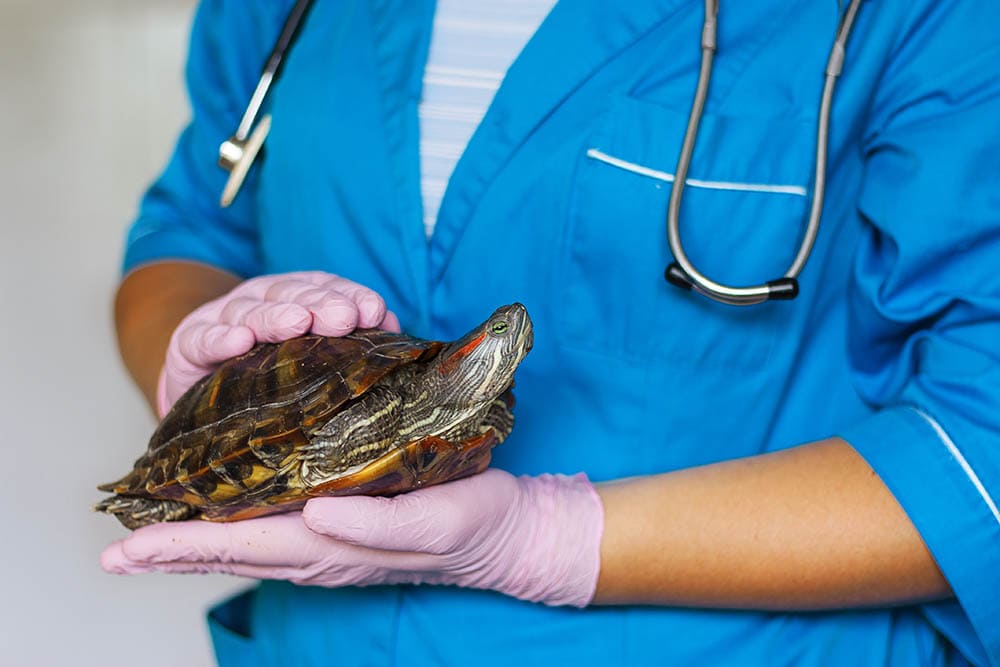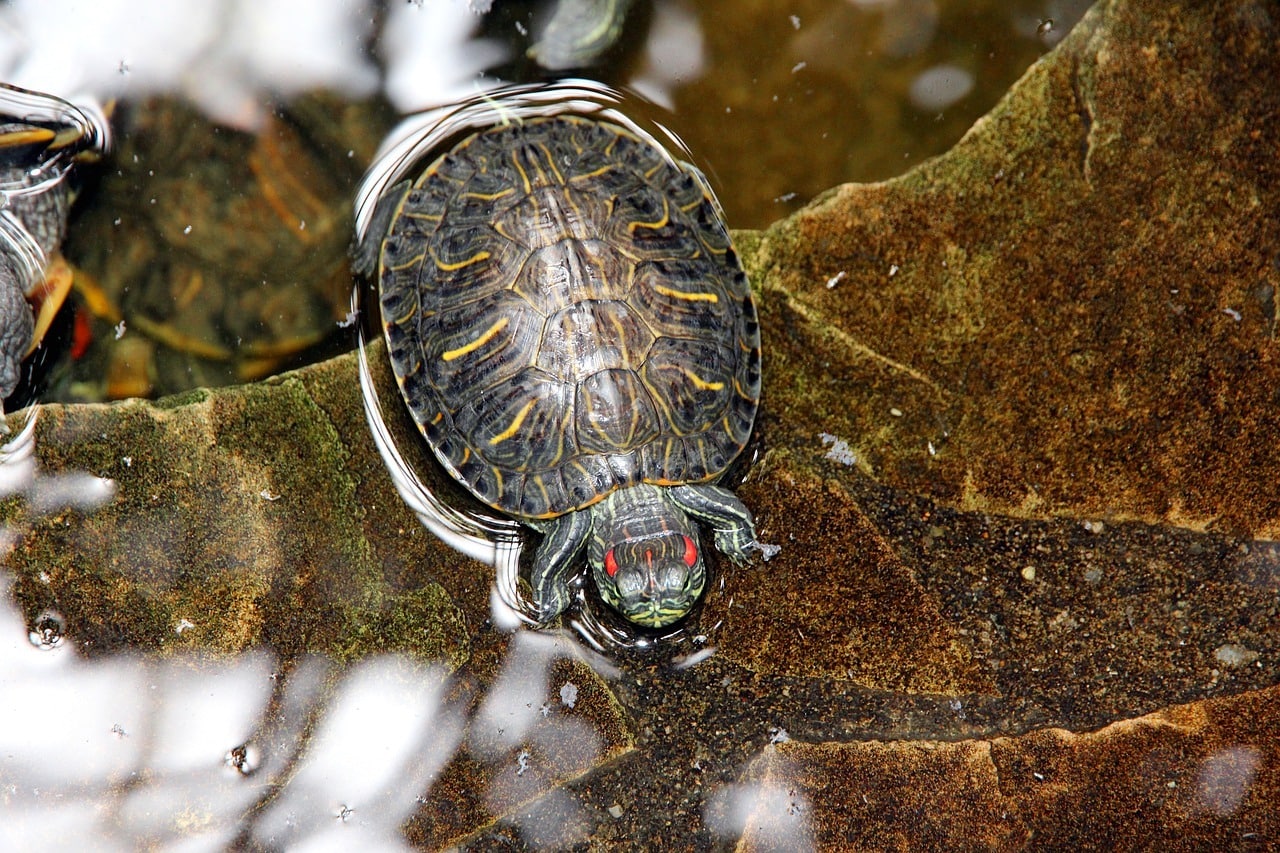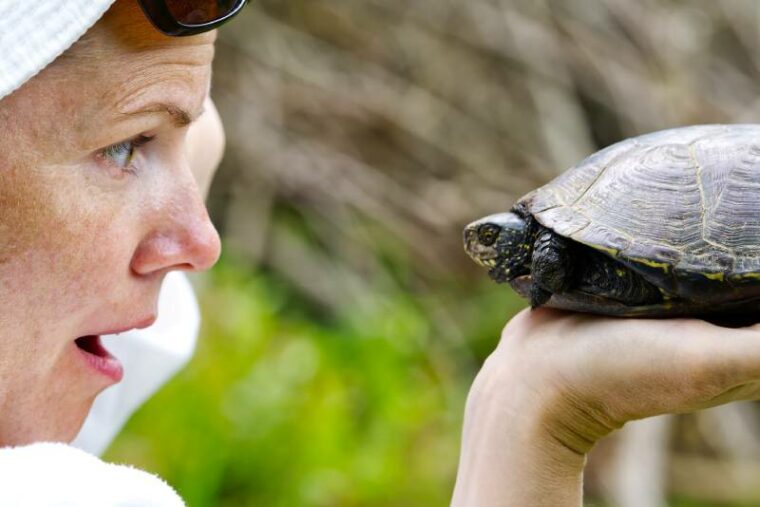
If you’re a turtle owner or considering becoming one, you might be wondering if these adorable creatures form attachments to their human caretakers. The answer is yes! Turtles can indeed recognize and even get attached to their owners. However, it’s important to note that the way turtles express affection is quite different from mammals like cats or dogs.
Understanding Turtle Affection
Unlike mammals, turtles express their affection in unique ways. While a dog’s affection is evident when it wags its tail excitedly on your arrival, and a cat might show its fondness by purring contentedly on your lap, turtle affection is subtler and more nuanced. Turtles tend to display their attachment through specific behaviors and reactions to your presence. They may not cuddle or wag their tails, but their affectionate responses are equally meaningful and rewarding.
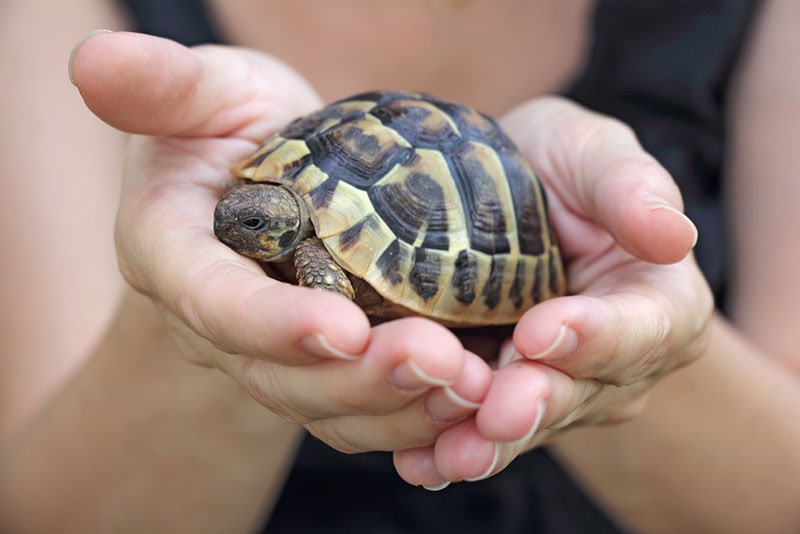
The 4 Ways Turtles Show Affection
1. Body Language
Just like humans, turtles use body language as a means of communication. A relaxed turtle that freely roams around you is likely comfortable and feels safe in your presence. They may extend their necks for a closer look at you or follow your movements with their eyes, signaling curiosity and interest. In contrast, if a turtle consistently retreats into its shell when you approach or tries to escape, it may indicate that they are feeling stressed, scared, or threatened. Understanding these behavioral cues can help you gauge your turtle’s comfort level and adjust your interactions accordingly.
2. Scent Recognition
Turtles possess an impressive sense of smell, which plays a crucial role in how they interact with their environment and recognize their owners. Your turtle will gradually associate your unique scent with positive experiences such as feeding time, playtime, or gentle handling. This association can lead to observable excitement or anticipation behaviors when they detect your scent, such as swimming towards you or becoming more active and alert.
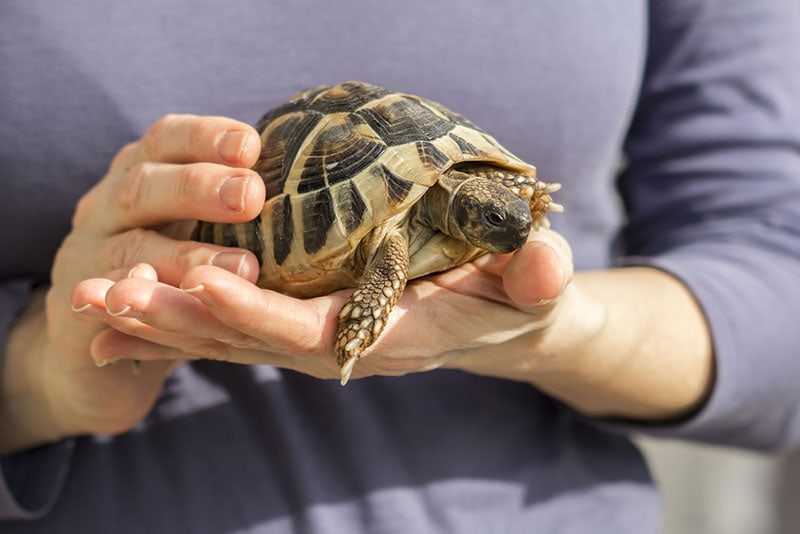
3. Sound Recognition
In addition to recognizing scents, turtles are also capable of recognizing certain sounds, including their owner’s voice. Some turtle owners report their pets responding to their voice or even reacting when their names are called. This recognition often manifests as the turtle orienting towards the sound or displaying curious behavior. Regular, gentle talking to your turtle can help foster this auditory recognition, contributing to your bond.
4. Seasonal Activities and Habitual Behavior
Research shows that turtles are creatures of habit and demonstrate strong fidelity to their home regions and preferred routines. They often return to the same basking spots, feeding areas, or hiding places, indicating a sense of familiarity and attachment to their surroundings. This habitual behavior further demonstrates their capacity for recognition and suggests a form of attachment to their home territory.
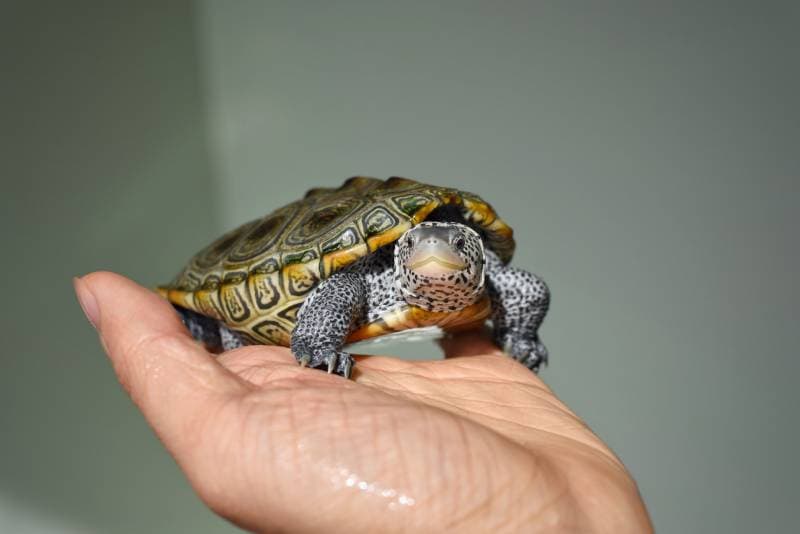
Tips for Keeping Your Pet Turtle Healthy and Happy
Handling Your Turtle
Despite their ability to recognize and show affection to their owners, turtles generally prefer to keep their feet on the ground. Being lifted can be stressful for them as it is an unnatural situation, far removed from anything they would experience in the wild. When handling is necessary, it should be done gently, providing full support to their body, and lifting them minimally off the ground. Avoid sudden movements that could startle them and always return them to their preferred spot after handling.

Maintaining a Positive Relationship with Your Turtle
Building a positive relationship with your turtle isn’t about lavish displays of affection; it’s about consistency, respect, and understanding their unique needs. Regular, calm interactions, coupled with proper care and an enriching environment, can help foster trust and strengthen your bond. Providing a variety of foods, clean water, and a comfortable, engaging habitat shows your turtle that you are a source of positive experiences, encouraging a stronger attachment.
Is It Sanitary to Handle or Kiss a Turtle?
Turtle love is that hands-off kind of love. It is not recommended to handle or kiss a turtle regularly. Turtles may carry harmful bacteria such as Salmonella that can cause serious illnesses in humans, so contact with the skin and saliva of your turtle should be limited to gentle handling of the shell while supporting the feet, and observation from a safe distance. Additionally, turtles can harbor parasites, which can be spread through contact with their excrement, shells, and bodies. Therefore, it is important to maintain proper hygiene (wash your hands!) when caring for your turtle and keep them away from food preparation areas.
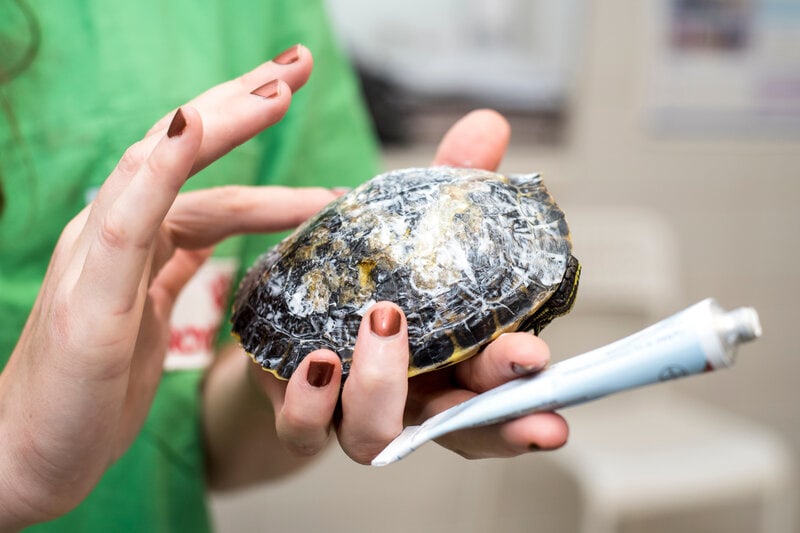
Patience Is Key
Forming a deep bond with a turtle doesn’t happen overnight. It requires patience, persistence, and plenty of positive interactions. Over time, with consistent care and gentle interaction, your turtle will learn to recognize you and may exhibit behaviors that indicate trust and recognition. Remember, every turtle is unique and will express themselves in their own time and way.
Other FAQs About Turtles
Can turtles learn their names?
Some turtle owners have reported that their turtles respond to their names being called. But this suggests that they can learn to recognize certain sounds, not necessarily responding to their name.
Can turtles interact with other pets?
Turtles are generally solitary creatures and might not interact well with other pets. Monitoring interactions closely is crucial to prevent stress or potential harm to your turtle.
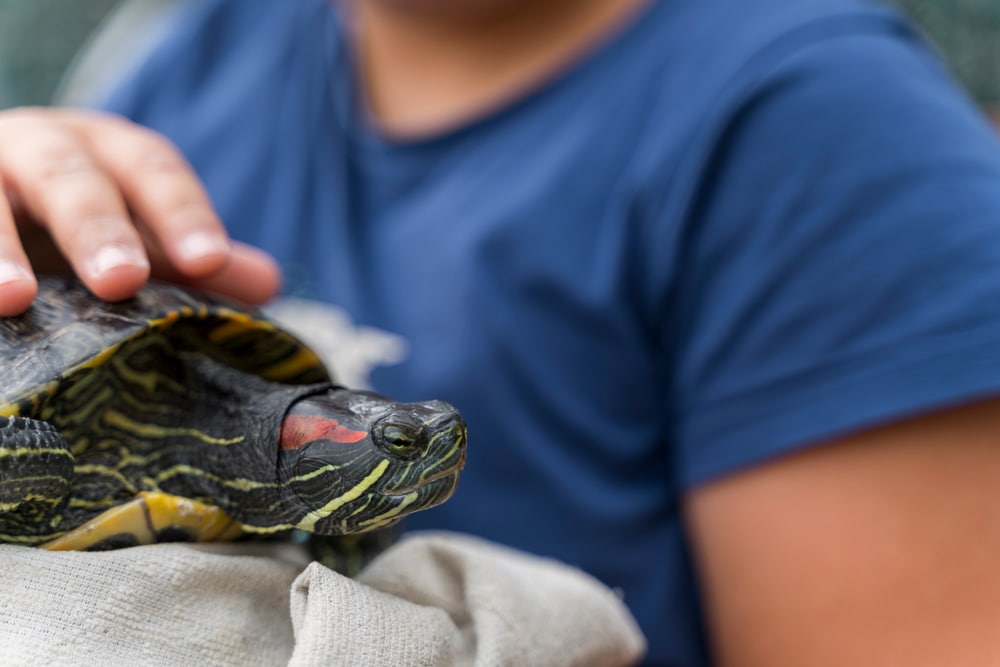
Is it okay to let my turtle roam around the house?
Generally, it’s not recommended to let turtles roam around the house due to potential dangers like falling, getting lost, encountering toxins, or coming into contact with other pets. Always supervise your turtle if they are out of their enclosure.
Conclusion
Does your turtle love you? The answer is yes…in its own way. While the bond between a turtle and their owner may look different than that of a dog or cat owner, it is no less significant. Turtles can recognize and become attached to their owners, demonstrating this in their unique, subtle ways. Cold-blooded doesn’t mean heartless in the turtle world!
Featured Image Credit: InFocus.ee, Shutterstock


